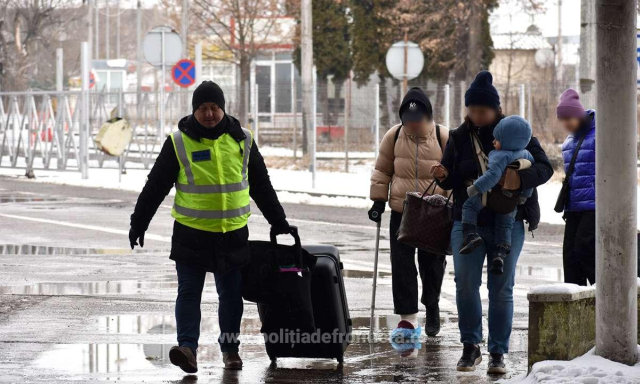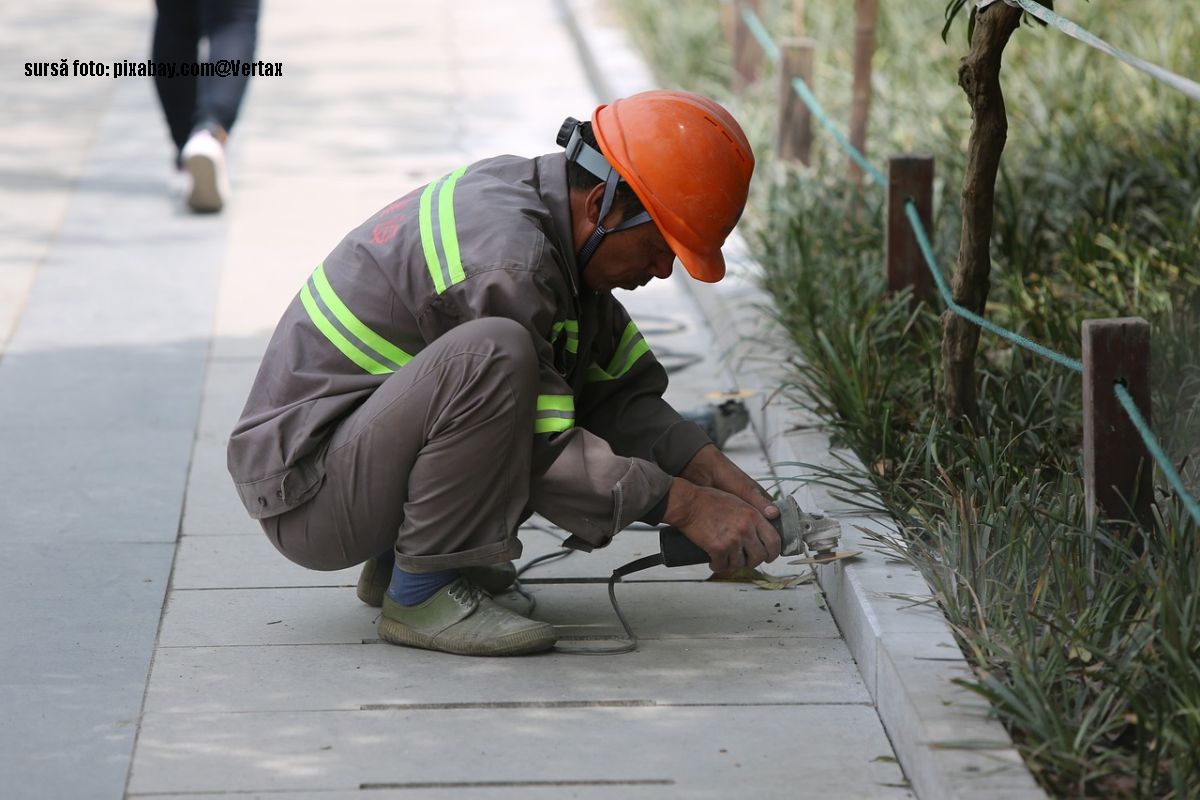Romanian support for the Ukrainian refugees
Almost 400,000 Ukrainian citizens have taken refuge in Romania since the start of the Russian invasion.

Christine Leșcu, 16.03.2022, 14:00
Almost 400,000 Ukrainian citizens have taken refuge in Romania since the onset of Russias attacks on Ukraine. Refugees started to appear at several cross-border points along the common border spanning almost 650 kilometers on the very first day of the invasion, February 24, especially in the north, as they were trying to enter Romania through the Maramureș and Moldavia regions. Fewer refugees were reported at the eastern border, at the mouths of the Danube River. In these border areas, the refugees were immediately received by the locals who, mobilizing instantly and instinctively, hurried to help them and offer them food and shelter. Then, the civil society representatives came in, alongside the official institutions. They set up tents, collected first necessity items, and provided information and transport to those who only wanted to transit Romania.
The Romanian National Council for Refugees has been there since February 24, to offer their expertise, says Ana Cojocaru, the representative of this organization: “My colleagues are currently on the ground, we are present at numerous cross-border points. We are an NGO specializing in legal expertise. Therefore, all we can do is provide information and counseling, and, if necessary, counseling on the asylum procedure in the case of those people who want the protection of the Romanian state. We also have two operational telephone lines on which we can be contacted at any time, during the day or at night. We receive tens or hundreds of calls per day on these lines. We are also present in all the refugee centers in the country that are subordinated to the Interior Ministry, more precisely to the General Inspectorate for Immigration.”
Many of the questions regarding the stationing on and crossing of the Romanian territory were centralized, in several foreign languages, on the dopomoha.ro website, a project supported by public institutions in collaboration with non-governmental associations. In addition, due to the seriousness of the situation, many of the formalities for entering Romania have been simplified.
But it wasnt like that from the beginning, Ana Cojocaru explains: “The questions we receive are mainly related to how to enter and transit Romania. Indeed, Romania has not had to deal with such large inflows of people in recent history. It was somehow natural to have to make little adjustments in the process, but I think we are now on the right track and there is more and more clarity and coordination between the state and civil society and between state institutions in general.”
However, what was most impressive was the quick response and empathy of ordinary Romanians towards refugees. Ana Cojocaru from the Romanian National Council for Refugees has more: “No one could have anticipated this extraordinary response from the civil society, from individuals, in general, and from border communities. There are many initiatives of NGOs and the state that are meant to support people displaced from Ukraine. And the response capacity is extraordinary. Let me give you an example: on Saturday night at 11:30 p.m. I was looking for a solution for a group of 14 people, some of whom were children, and I found an accommodation solution for them in 10 minutes from another trustworthy person. Of course, we have encountered difficulties, especially at the beginning, because the number of people who wanted to help was so great that a little chaos was created at the main border-crossing points. Meanwhile, information started being gathered, at central level, on all these initiatives. Cells have been set up in those counties with cross-border points to Ukraine and the Republic of Moldova. And I think we are currently better adjusting the coordination process.”
Ștefan Mandachi, a local entrepreneur from the Suceava area, is one of the Romanians who, since the first day of war, has helped the refugees. Impressed by the crowd of people who “out of all that they had gathered in a lifetime, grabbed hastily what they could in a bag and ran away with their children and pets, not knowing if they would ever return”, Ștefan Mandachi offered these people free accommodation and meals in his hotels and restaurants.
Ștefan Mandachi does not know how many people he has helped so far: “I cant give you an exact number right now. I know there are over 200 people every day. For example, one day we had to open another dining room. I think there was a record number of people then, about 300 or so. Every day, more than 200 people come for accommodation. We have eventually set up a call center, we made a team and through this formula we have managed to identify what people need: apartments, transport, short-, medium- and long-term stays. At present, one of our priorities is to be able to take these people to their places of accommodation, or transport them to Europe, wherever they might want to go.”
As expected, refugees are sad and desperate. Stefan Mandachi explains: ”I guess everyone realizes that people coming from Ukraine are in a very bad state. They get a better mood only when their children start playing. We tried to organize some games, to divert their attention from the war. When the parents, in fact the mothers, because the fathers remained in Ukraine, see their children smiling, they can loosen up a bit. But obviously, there is a lot of tension among the entire Ukrainian community and not only, because there are refugees of other nationalities, such as Nigerians, Indians and Moroccans who were studying in Kyiv.”
Neither Ștefan Mandachi, nor the other NGOs would be able to cope without the contribution of volunteers, ordinary Romanians who have come to the rescue of the refugees as best as they could.
Stefan Mandachi has details: “Weve put together a great team of volunteers. Many of them are Moldovan and Ukrainian students studying at a university in Suceava. They came in large numbers. They are doing their job very diligently and with great passion. They are very passionate, which is an inspiration for us too. I didnt know about 90% of them, I had never seen them before. They had come from nearby communes such as Salcia and Bihoreni. I didnt know them, but they were very happy and behaved as if we had known each other for a lifetime. They all came here to volunteer.”
Unfortunately, as the war in Ukraine seems to continue, the number of refugees is going to increase, and the process of providing help should be more and more efficient. (LS)






























